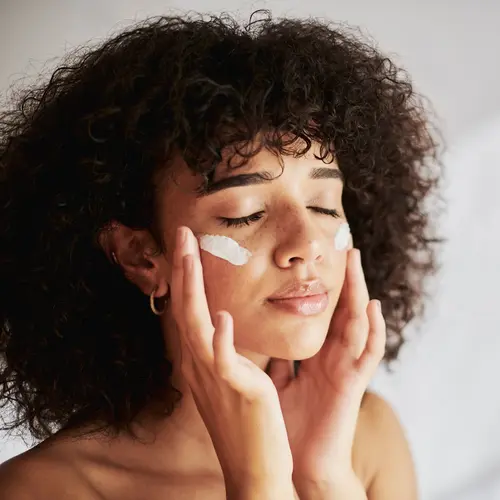Is aging skin preventable? Sure, if you believe the ads for products that claim to slow the aging process. But how much is your aging skin really under your control?
With age, the skin suffers natural wear-and-tear, just like the rest of our bodies. But much of what we think of as natural aging is in fact due to sun exposure and other factors. That means it can be avoided -- and it's never too late to start.
Normal Aging of Skin: Collagen, Elastin, and Sagging Skin
Underlying our skin is a fiber meshwork of collagen and elastin -- proteins that keep skin firm. When skin is stretched, this protein matrix snaps it back into place.
As we age, the fiber network weakens, and skin sags as it loses its support structure. Other unavoidable forces contribute to aging skin, as well:
- Skin becomes thinner with age, and loses fat. The plump smoothness of our skin as children is replaced by a rougher texture.
- Gravity relentlessly tugs on weakened skin, creating the droop of jowls or "chicken fat" under the arms.
- Our genetic code contributes invisibly to the process -- leading to skin that looks 50 at 80 in some people, the unfortunate reverse in others.
None of this so-called "intrinsic aging" of skin can be avoided. But did you notice we haven't said anything yet about wrinkles?
Preventable Aging of Skin: Sun Damage
In fact, most of the skin changes associated with aging are avoidable. And most of them are due to one cause: sun damage.
The ultraviolet rays from the sun penetrate into the skin. There, they damage the elastic fibers that keep skin firm, allowing wrinkles to develop. Sunlight is also responsible for age spots or "liver spots" on the hands, face, and other sun-exposed areas.
The amount of wrinkles that develop, and how prominent they are, are largely dependent on a person's lifetime sun exposure. While we can't go back and put sunscreen on our carefree 10-year-old selves, we can stop the damage that's happening now:
- Stop intentionally sunbathing. Any suntan means skin damage has occurred.
- Always wear sunscreen. Choose a product with sun protection factor (SPF) 15 or greater. The hands and face are the most frequently exposed -- cover them.
- Wear a hat with a brim.
- Avoid the sun between 10 a.m. and 3 p.m., when its rays are the strongest.
Even with perfect sunscreen use, wrinkles can't be prevented completely. Some wrinkling is hereditary, and a certain amount of wrinkles are natural to aging.
Besides preventing sun damage, other habits can age skin prematurely. Slow the aging process by eliminating these skin wrinklers.
How Smoking Damages Skin and Causes Wrinkles
Wrinkles occur sooner and run deeper in people who smoke, leading to so-called "smoker's face." Decreased blood flow to the face, and damage from toxic chemicals in smoke, are the likely causes. In addition, smokers tend to squint to keep smoke from their eyes, which can cause wrinkles.
Crow's feet around the eyes, and droopy skin around the eyelids ("smoker's face") are common in long-time tobacco smokers. A desire to protect your youthful looks is one more good reason to quit smoking.
Excessive Drinking and Your Skin
Excessive alcohol (more than one drink a day for women, two for men) is bad for skin, and your health in general. People who drink heavily tend to not eat a healthy diet -- depriving skin of the nutrients it needs to prevent aging.
The Diet and Skin Connection
Skin is constantly fighting a battle with the sun, and constantly repairing and regenerating itself. Your skin needs the right nutrition to stay young and healthy looking. If you're eating lots of junk food, you're feeding your skin junk, too.
Antioxidants like vitamin C and E, as well as vitamin A and the B vitamin biotin, are particularly important for healthy skin. You'll get all of these nutrients, and more, by eating five to seven servings of fresh fruits and vegetables each day. Tomatoes, citrus, green leafy vegetables, and carrots are a good place to start.
Our parents gave us many gifts. Maybe the genes for good skin were one of yours. But no matter what kind of skin you inherited, you can take action to keep the skin you have looking young.


